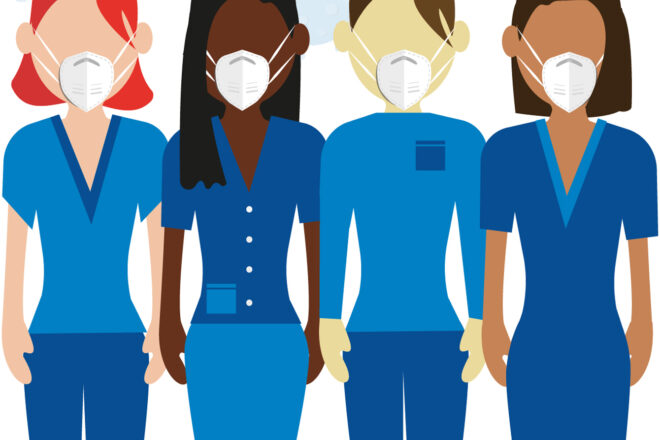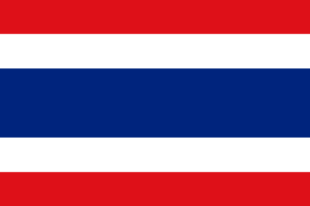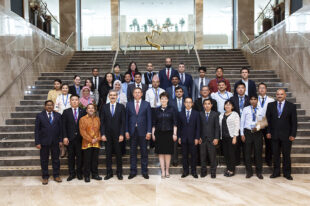by Marie-Hélène Bérubé, Program Officer, Gender Equality and Ethics, Canadian Audit and Accountability Foundation, and Petra Schirnhofer, Manager, Strategic Support Unit, INTOSAI Development Initiative
Impacts of the COVID-19 Pandemic affect everyone around the world. Due to long-standing inequalities, many impacts, including those on health, the economy and the social sphere, are afflicting women, girls and marginalized populations hardest. Early evidence shows the crisis is deepening existing inequalities and undermining hard-earned progress on gender equality and women’s rights.
Supreme Audit Institutions (SAIs) can help reverse this trend. As SAIs hold governments accountable for national pandemic responses, applying a gender lens to audits can help determine how women, girls and marginalized populations are affected and can lead to informed recommendations to help improve government programs.
This article examines how SAIs can play a positive role during this crisis and make a difference to the lives of all citizens.
Why Gender Matters in Times of Crisis
During a pandemic, several health, economic and social impacts on citizens are observed, particularly on women, girls and marginalized populations, such as people with disabilities, racial minorities and the Lesbian, Gay, Bisexual, Transgender/Transsexual and Intersex community.
Since the COVID-19 Pandemic began, governments have observed escalated gender-based violence and child abuse during lockdown; intensified levels of anxiety and stress experienced by frontline workers (who are predominantly women); and increased unemployment levels (women are particularly at risk, as they hold the majority of informal and lower-paying positions that lack job security).
In many countries, impacts of the pandemic add to the context of poverty and insecurity and will further harm women and girls already experiencing different forms of inequalities and discrimination.
To counterbalance the risk of increased gender inequalities, social protection and support is vital. Research indicates that in times of crisis the likelihood of girls dropping out of school to perform unpaid work to support families increases, as do pregnancies and cases of sexual abuse. Studies also show school and daycare closures will disproportionately impact women, as the burden of unpaid work and family care largely falls on women and girls in many societies.
Governments can effectively respond by conducting gender-based analyses, using gender budgeting tools and ensuring the voices of women, girls and marginalized groups are included in decision-making processes. Such actions, which help prevent reinforcing existing gender norms and stereotypes and worsening inequalities, can turn pandemic responses into opportunities that challenge and transform gender inequities.
How SAIs Can Make a Difference
As governments rush to implement large-scale responses to the crisis, SAIs, more than ever, are strongholds of accountability (see “Accountability in a Time of Crisis” published by the INTOSAI Development Initiative). Over the last few months, SAIs around the world have worked toward remaining resilient and flexible, and many have refined or refocused audit priorities and approaches under difficult circumstances (noting particular importance to employing a risk-based auditing approach). By integrating a gender dimension to audit work, SAIs can assist governments in ensuring national responses reflect the needs and voices of women, girls and marginalized groups.
Numerous SAIs have recently applied a gender lens in audits, especially in auditing preparedness for Sustainable Development Goal (SDG) implementation. Gender equality and inclusiveness is enshrined in the 2030 Agenda for Sustainable Development, which considers all segments of society irrespective of race, gender, ethnicity and identity.
As SAIs embark on auditing national COVID-19 Pandemic responses, it is equally important to mainstream gender equality and inclusiveness throughout the audit process. This enhances audit impact, helps determine whether citizens are being assisted equally, and assists SAIs in providing informed recommendations for improvement. Key considerations for SAIs include:
- Planning and Analysis—Examining whether governments have conducted gender analyses in designing pandemic responses and whether they have investigated varying impacts engagements may have on women, girls and marginalized groups.
- Decision-making—Understanding how government decisions are made, who participates in decision-making processes, and what mechanisms are in place to ensure women, girls and marginalized groups are well represented.
- Legal and Regulatory Compliance—Assessing the extent to which new government measures and programs adhere to human and women’s rights and comply with existing gender equality laws and regulations, which include many areas, such as domestic and gender-based violence, sexual harassment, labor standards and health care.
- Monitoring and Evaluation—Determining if (and how well) governments are collecting disaggregated data on citizen accessibility to support programs and whether data is used to monitor different outcomes for different groups.
These key considerations allow SAIs to formulate questions when auditing national COVID-19 Pandemic responses, such as:
Social Protection and Economic Stimulus Packages
- Are cash transfers, other social protection measures and economic stimulus packages efficiently and effectively reaching target groups?
- Do governments provide financial support to marginalized groups working in sectors having no provisions for health insurance and social protection?
- How do governments support parents—mainly women and single parents—whose work is largely unpaid?
Health Systems and Programs
- As World Health Organization reports indicate men are more likely to die from the COVID-19 virus and women represent about 70% of global health care and social workers, how are governments responding to each gender’s unique needs?
- How are governments supporting other critical services, such as access to maternal and mental health care?
Gender-based Violence
- Recognizing raised levels of domestic and gender-based violence during lockdown, how do governments address prevention as well as implementing and supporting risk management measures?
- Do governments provide services (help lines, shelters, mental health programs) that address all citizen needs?
Conducting audits that incorporate gender provides access to disaggregated data by sex, age, location and other categories. This information assists in addressing data gaps and prompting governments to gather more statistics to better inform future work.
SAI outreach to relevant stakeholders (such as governments, development partners, civil society organizations and groups working on gender, women’s rights and inclusiveness issues) is essential to applying a gender lens in any audit. Active dialogue aids in understanding overall responses, assessing primary risks, and conducting audit work that adds the most value possible.
Conclusion
As the current pandemic holds a tight grip on the world with massive global social and economic impacts, accountability and oversight remain crucial.
SAIs, through timely, relevant audits and reports, can significantly influence national pandemic responses. Yet, to truly make a change in the lives of all citizens, integrating a gender lens in audit work is vital and particularly important in times of crisis, as health, economic and social challenges are intensified.
The COVID-19 Pandemic is a challenging moment for all, calling for us to contribute when and where we can in building more equal and resilient societies for the future.
Contacts
Contact Marie-Hélène Bérubé at mhberube@caaf-fcar.ca and Petra Schirnhofer at petra.schirnhofer@idi.no for more information about this article.
Additional Reading
Learn more about COVID-19 and the impacts on gender in the following UN Women (2020) publications:
About Us
INTOSAI DEVELOPMENT INITIATIVE (IDI)
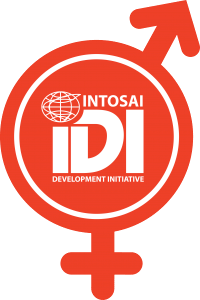
IDI supports SAIs in developing countries in sustainably enhancing performance and capacities. In this work, IDI seeks to apply a gender lens and raise awareness on the importance of gender equality within the International Organization of Supreme Audit Institutions (INTOSAI) community and partners. A needs-based organization, IDI adapts delivery mechanisms, where necessary, to be more effective during crises and has already increased eLearning offerings and digital engagement opportunities. IDI has a dedicated gender function and reconfirmed its strong commitment to applying a gender lens in upcoming work.
IDI’s planned pilot on auditing intimate partner violence against women, linked to SDG target 5.2, will incorporate data and lessons learned from the COVID-19 Pandemic. IDI also intends to perform a cooperative audit on health systems—linked to SDG target 3D, “Strengthen the capacity of all countries, in particular developing countries, for early warning, risk reduction and management of national and global health risks”—where gender and inclusiveness considerations will be mainstreamed and visualized as part of the audit’s impact. Both audits will use IDI’s SDG Audit Model (ISAM).
Cooperation and collaboration are key, and IDI calls upon all SAIs and partners to work together to help advance hard-earned achievements on gender equality.
CANADIAN AUDIT AND ACCOUNTABILITY FOUNDATION (CAAF)
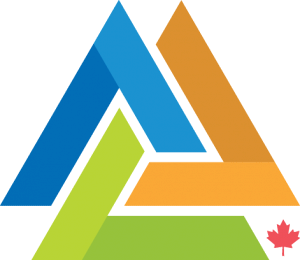
CAAF is a not-for-profit organization dedicated to promoting and strengthening public sector performance audit, oversight and accountability in Canada and abroad through research, education and knowledge sharing.
Through its international program, which is funded by the Government of Canada, CAAF helps SAIs build performance audit capacity with a focus on auditing gender equality and the SDGs. CAAF has developed several related resources, including the “Practice Guide to Auditing the SDGs: Gender Equality” and a course on “Auditing Gender Equality.” CAAF is also beginning work on gender mainstreaming with the goal to foster gender equality and women’s empowerment in partner SAIs.
Throughout this pandemic, CAAF has been adapting to new ways of working and exploring innovative ways to provide value to its members and partners, which includes a webinar series launched in April, repository of COVID-19 resources for auditors and oversight committees, and upcoming online training offerings. Learn more at www.caaf-fcar.ca.

